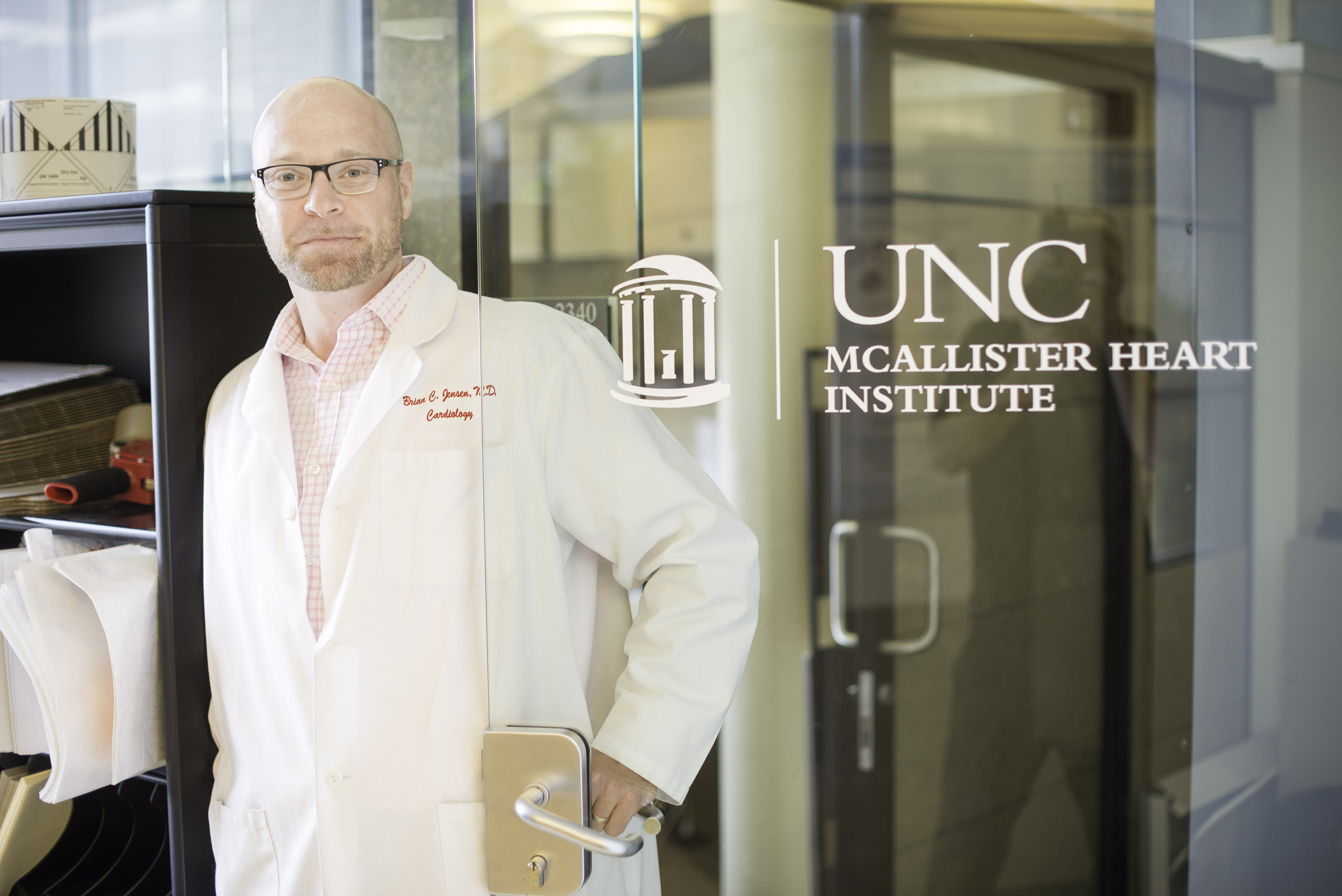A $1.9 Million NIH grant will enable new studies of alpha-1-adrenergic receptors in the heart. Dr. Brian Colwell Jensen, an associate professor in the division of cardiology and the department of pharmacology, will serve as principal investigator for research that considers how metabolic alterations provide cardioprotection.

Dr. Brian Colwell Jensen with the UNC McAllister Heart Institute has received a $1.9 million NIH R01 grant to expand recent findings that alpha-1A adrenergic receptors (ARs) protect the failing heart by providing more energy for heart muscle cells through more efficient glucose metabolism and enhanced mitochondrial function.
Epinephrine and norepinephrine are known to activate both alpha-1 and beta-ARs in the heart, and chronic stimulation of beta-ARs by elevated levels of these hormones contributes to heart failure. In contrast, activation of alpha-1-ARs protects the heart, though the mechanisms that account for this benefit are not completely understood.
“We are really excited to continue our exploration of the protective roles that the alpha-1A adrenergic receptor subtype plays in the failing heart,” said Dr. Jensen. “These receptors are activated by adrenaline (epinephrine) as part of the body’s chronic stress response to heart failure. We believe their activation may mitigate some of the harmful effects of chronic beta adrenergic receptor stimulation.”
Dr. Jensen’s team will use a safe oral drug to selectively stimulate alpha-1A-ARs in experiments. Drugs that target beta receptors (beta blockers) are central to the treatment of heart failure and the Jensen lab’s recent work lays the groundwork for the long-term goal of developing a novel therapy for heart failure that selectively stimulates the alpha-1A-AR.
“As a scientist, I’m energized by the opportunity to learn more about the way the heart works,” said Dr. Jensen. “As an advanced heart failure cardiologist, I’m motivated by the crucial need for more and better ways to help patients with heart failure.”